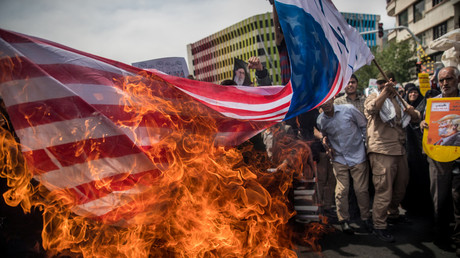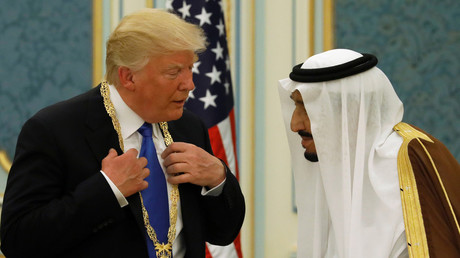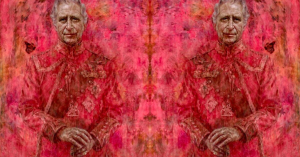Saudi Arabia can survive ‘2,000 years’ without US help & not face civil war like America – MBS
Saudi crown prince Mohammed bin Salman may, as he said, ‘love’ working with the US but, when it comes to thinking of examples of successful managers of social change, he is decidedly ‘America last.’
Known in the West by his initials MBS, the crown prince compared the financial, political and legal reforms in the desert kingdom to what has happened in the US. “...if you look at the United States of America, when for example they wanted to free the slaves. What was the price? Civil war. It divided America for a few years. Thousands, tens of thousands of people died to win the freedom for the slaves,” Bin Salman told Bloomberg in a wide-ranging interview published Friday.
“Here we are trying to get rid of extremism and terrorism without civil war, without stopping the country from growing, with continuous progress in all elements,” the crown prince added. “So if there is a small price in that area, it’s better than paying a big debt to do that move.”
Two weeks? Try 2,000 years!
Bin Salman brushed off US President Donald Trump’s comments about Saudi Arabia perishing within two weeks without American support, saying that his kingdom existed decades before the US and will need “something like around 2,000 years to maybe face some dangers.”
“Actually, we will pay nothing for our security,” the prince said, explaining that what Riyadh pays the US for is weapons purchases, which have increased since Trump’s election.
“I love working with him. I really like working with him,” bin Salman said of Trump, calling his comments about security something for internal US consumption and a “one percent” disagreement between allies.
Bin Salman has been the public face of “reforms” that Riyadh has embarked on to diversify its economy and relax some of its laws – such as allowing women to drive, for example – since he became crown prince of Saudi Arabia in 2017.
Saudis shouldn’t be scared, ‘only’ 1,500 arrested in 3 years
Asked why some Saudis seem afraid to speak to journalists, Bin Salman said they shouldn’t be, and that only those who speak with foreign intelligence agencies should fear arrest. In the course of “fighting extremism, fighting terrorism” over the past three years, only “about 1,500” people have been arrested, he emphasized, comparing it to 50,000 in Turkey after the attempted military coup there.
Anyone shown to have “links with intelligence against Saudi Arabia or extremism or terrorists” will face Saudi law, Bin Salman said. “We have do to this. We cannot fight extremists having 500 or 700 extremists on the streets recruiting people.” He named Iran and Qatar as the main suspects.
While the Salafist Saudi Kingdom has long been at odds with the predominantly Shia Islamic Republic on the other side of the Gulf, relations with Qatar have soured in recent years. Riyadh and its allies declared a blockade of the peninsular monarchy in June 2107, accusing Qatar, the owners of Al Jazeera, of secretly collaborating with Iran and of supporting Islamic State (IS, formerly ISIS/ISIL) and other terrorists. The tensions show no signs of ending anytime soon.
$35bn claimed in ‘Ritz arrests’
Hundreds of royal family members and businesspeople have been arrested in what was described as an anti-corruption purge, launched in November 2017. It became known as the “Ritz arrests,” because the people thus rounded up were detained at the Riyadh Ritz-Carlton hotel.
It was estimated that up to $100 billion in cash and assets might have been confiscated in the course of the “Ritz arrests.” According to the crown prince’s interview, however, as of this week that number is just north of $35 billion, forty percent in cash and the rest in assets. Eight people are still being held, and the confiscations should be complete “in the next maybe two years,” he said.
Like this story? Share it with a friend!




